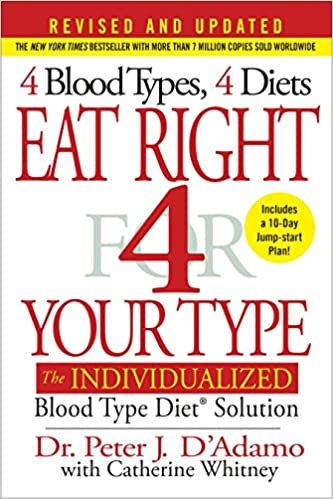The Blood Type Diet claims that your diet should fit your blood type for optimal health. You can achieve your ideal weight and enjoy a healthier and longer life if you eat according to your blood type. Is this claim backed by science? How does the Blood Type Diet work? Read on to learn more.
The Blood Type Diet Theory

The optimal diet for your health is determined by your blood type – this is what Dr. Peter D’Adamo, a naturopathic physician, claims in his book, Eat Right 4 Your Type, which was first published in 1996 and still popular today.
In his book, Dr. D’Amo proposes that the diet on which our ancestors thrived is part of their unique genetic makeup, and because a person’s blood type or blood group is also an expression of the genes they inherited, a person should eat according to what is most suitable for their blood type.
Blood Type A should follow an “agrarian or cultivator diet,” which is rich in plants and with zero red meat. This diet is similar to a vegetarian diet.
Blood Type B has the “nomad diet,” which includes plants, most meats (not including chicken and pork), and some dairy. Foods that should be avoided are corn, lentils, wheat, tomatoes, and a few others.
Blood Type AB should follow the “enigma diet,” which is a mix of blood types A and B and includes beans, grains, dairy, seafood, and tofu. Foods that should be avoided include corn, kidney beans, chicken, and beef.
Blood Type is best suited for the “hunter diet,” which is a high-protein diet that mostly includes meat, fish, poultry, and certain fruits and vegetables. This is similar to the paleo diet. Foods that should be avoided include grains, legumes, and dairy.
Overall, the Blood Type Diet promotes going back to the basics of healthy eating. Whichever blood group you belong to and sub-type of diet you’re supposed to follow, the focus is on eating real foods – which would be a step in the right direction for those who have been subsisting on the standard modern diet mostly made up of processed foods.

Is the Blood Type Diet Good for Health and Weight Loss?
The Blood Type Diet largely eliminates unhealthy, processed foods – and this is what makes it beneficial to health and effective for weight loss.
However, any improvement to your health and/or weight will essentially be the direct result of the inherent healthfulness of each of the 4 subtypes of the Blood Type Diet, and will not necessarily be related to your blood type. This will be especially true for individuals whose diets have always been heavy on carbohydrates, sugars, and fats and low on nutritious ingredients.
Following the Blood Type Diet means knowing your blood type. Each subtype is highly restrictive and does not take into account personal preferences and even food sensitivities and/or disease risks and existing health conditions.
As with most highly restrictive diets, nutritional deficiencies are a big risk, particularly if any of the four eating plans are adopted long-term. Another drawback of this diet is that the extreme restrictions often set up an individual for failure. It can be extremely difficult for a lot of people to commit to a diet plan that excludes a lot of food groups. Feelings of deprivation and frustration, even boredom, are common among these people and cause them to fall off the weight-loss wagon.

Blood Type Diet – Final Thoughts
The Blood Type Diet promotes healthy eating by emphasizing real foods and eliminating the majority of the unhealthy food choices that make up the modern man’s diet. The diet is based on the theory that our blood type evolved with how our ancestors used to eat and, therefore, the ideal diet for optimal health is determined by a person’s blood type.
With its emphasis on real foods, promotion of going back to the basics of healthy eating, and exclusion of processed foods, the Blood Type Diet can lead to weight loss. However, its restrictive nature makes it unsustainable. The health benefits are a given, considering the healthy food choices, but are not necessarily linked to blood-type specific eating.
The diet also does not take into account a person’s risks for certain diseases, any food sensitivities, and/or existing conditions; additionally, following the diet for a prolonged period may lead to serious nutritional deficiencies.
If you do decide to go with the specific diet that is supposed to be ideal for your blood type and it works for you – both in terms of weight loss/management and overall health – and you have no problem with the restrictions, then you can adopt it long-term; just make sure you still meet all your daily nutrient needs.



